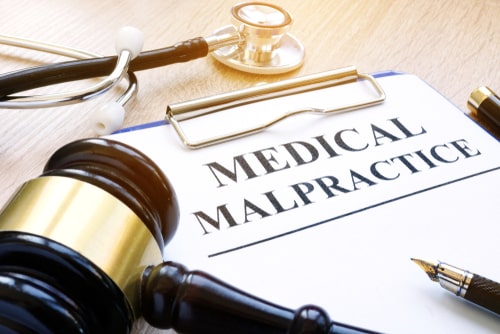How do lawyers know if someone has a medical malpractice claim? The key to any medical malpractice claim is based on what the records tell us. There’s an old adage in medical malpractice law: the records tell the story. And by that, we mean you know what happened in an operating room based upon your review of the documents. Let’s face it: the patient or the client is probably out and not conscious of what happens in the operating room. So how do we know?
We look at what the doctors and nurses record during that procedure. That gives us guidelines as to where potential medical malpractice occurred. In many cases, it is literally thousands of pages.
We also have the help of medical experts who will come in and examine those records, sort them for us, and put them in appropriate categories.
Shapiro Washburn & Sharp has decades of experience of successfully representing clients injured because of medical negligence. If you believe you’ve been a victim of medical malpractice, call our office at 833-997-1774 to schedule a free consultation to learn more about your legal rights and options for seeking justice and maximum compensation.
Who Determines Standard of Care in a Medical Malpractice Lawsuit?
In a medical malpractice lawsuit, the determination of the standard of care is typically made by expert witnesses. The standard of care refers to the level of care and skill that a reasonably competent healthcare professional in the same field, under similar circumstances, would provide to a patient. It serves as the benchmark against which the defendant’s actions or omissions are evaluated to determine whether there was a breach of the standard of care. Here’s an overview of how the standard of care is determined in a medical malpractice lawsuit:
Expert Witnesses
Expert witnesses play a crucial role in establishing the standard of care in a medical malpractice case. These witnesses are typically medical professionals who have experience and expertise in the same specialty or field as the defendant healthcare provider. They are qualified to offer opinions on the appropriate standard of care and whether the defendant’s actions met or deviated from that standard.
Medical Specialization
The standard of care is evaluated within the specific medical specialization or field relevant to the case. Different medical specialties have different accepted practices and protocols. For example, the standard of care for a cardiologist may differ from that of an orthopedic surgeon. Expert witnesses in the same field as the defendant healthcare provider provide insight into the specific standard of care applicable to that specialty.
Expert Witness Testimony
During a medical malpractice trial, expert witnesses are called upon to provide testimony regarding the standard of care. They explain what a competent healthcare professional would have done in similar circumstances and how the defendant’s actions or omissions fell short of meeting that standard. Their testimony is based on their experience, knowledge, and familiarity with the medical practices and protocols relevant to the case.
Research and Peer-reviewed Literature
Expert witnesses may rely on medical research, peer-reviewed literature, professional guidelines, and established protocols to support their opinions on the standard of care. They review and analyze these sources to determine the accepted practices and prevailing standards within their medical specialty.
Professional Organizations and Guidelines
Expert witnesses may refer to professional organizations and their published guidelines or standards when assessing the standard of care. These organizations, such as medical boards or associations, often develop guidelines or codes of conduct that healthcare professionals are expected to follow. Deviations from these guidelines may be considered evidence of a breach of the standard of care.
Local Practice
The standard of care can also be influenced by local practices and customs. Regional variations or differences in healthcare delivery, resources, or patient populations may be considered when determining the standard of care. Expert witnesses may take into account the practices and norms followed by healthcare providers in the geographic area where the alleged malpractice occurred.
Why Is Legal Representation Critical in a Virginia Malpractice Lawsuit?
Virginia’s malpractice laws are highly specific and require careful navigation of procedural rules and evidence requirements. A skilled attorney understands the complexities of the certification process, the standard of care, and the burden of proof needed to win your case.
Your attorney will guide you through every step, from finding a qualified medical expert to negotiating with insurance companies or presenting your case in court. With their expertise, you can focus on your recovery while they work to secure the compensation you deserve.
Contact Shapiro, Washburn & Sharp at 833-997-1774 for a free consultation. We are ready to help you understand your legal options and ensure that your rights are protected.
